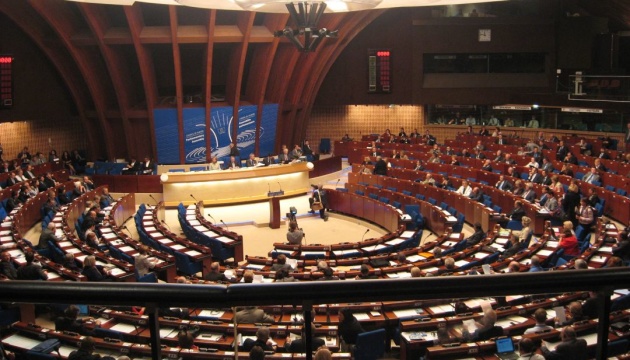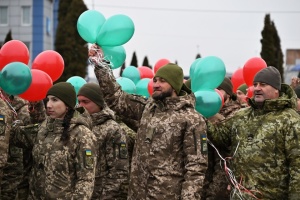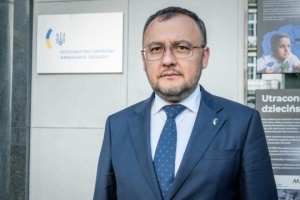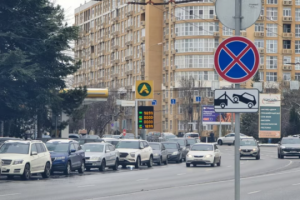
Council of Europe gives anti-hatred recommendations to Ukraine
This is stated in the fifth report by the Council of Europe's European Commission against Racism and Intolerance (ECRI), which was made public on Tuesday, an Ukrinform correspondent reports.
"While we welcome the progress achieved, there are issues that still give rise to serious concern. The ongoing conflict in Ukraine has led to a sharp rise in hate speech over the past three years and has had a negative effect on vulnerable groups in general," ECRI Chairperson Christian Ahlund said.
According to the Council of Europe press release, in its new report on Ukraine, ECRI commended new legal provisions to combat discrimination, progress in investigating hate crimes, steps towards integrating Roma and solidarity towards internally displaced persons (IDPs).
At the same time, according to the authors of the document, "efforts must be stepped up to end racist violence against LGBT and Roma and hate speech dominating public discourse, and to improve conditions of IDPs."
"I trust the authorities will take on board the recommendations of the report," Council of Europe Secretary General Thorbjorn Jagland said. "For our part, the Council of Europe remains committed, including through the currently developed Action plan for Ukraine 2018-2021, to continue working with the country's authorities in countering hate speech and discrimination against minorities, and promote tolerance and mutual understanding," he added.
ECRI noted that the Law on Prevention and Combatting Discrimination enacted in 2012 is largely in line with its recommendations, and that the introduction of provisions prohibiting discrimination on the basis of sexual orientation and gender identity in the Labor Code in 2015 was a positive development.
"The ongoing conflict in Ukraine has led to a sharp increase in hatred over the past three years and has negatively affected vulnerable groups as a whole," Ahlund said.
The ECRI report stresses that as a result of the illegal annexation of Crimea by the Russian Federation and of the armed conflict in parts of Eastern Ukraine, political discourse has been dominated by anti-Russia rhetoric. However, there have reportedly been few incidents of harassment or abuse of individuals or groups on the basis of their Russian identity in Kyiv or other areas.
The report states that, "while there is a high degree of solidarity towards IDPs in Ukrainian society, and most were welcomed with understanding and support in 2014, the initial sympathy now appears to be waning. IDPs encounter difficulties with residence registration, which hampers access to rights, housing and employment."
"In 2014 and 2015, there was an increase in serious violence against LGBT persons. Racist violence committed by police continues to be reported, as well as their failure to intervene to stop racist and homophobic attacks," the authors say.
ECRI also gives a number of recommendations to the Ukrainian authorities. The following two require priority implementation and will be followed up in two years: specifically include reference to sexual orientation and gender identity as grounds in the Criminal Code and thus criminalize incitement to homo/transphobic hatred; and waive court fees in cases of Roma seeking to prove their identity for the purpose of obtaining personal identification documents.
Among other recommendations are granting investigation powers to the Parliamentary Commissioner for Human Rights; explicitly including sexual orientation and gender identity as grounds in the Law on Principles of Prevention and Combating Discrimination in Ukraine; establishing a system of collection of statistics on Roma integration; facilitating access of Roma children to pre-schools, as well as putting an end to their racial segregation and bullying in schools; improving access of refugees to social benefits, housing, education, language learning and employment; solving the housing and employment issues of IDPs and investing in their integration; as well as establishing a body independent of the police and prosecution authorities to investigate allegations of racially-motivated misconduct by the police.
The report covers the situation from 2011 up to March 23, 2017. It does not take into account the situation in the Autonomous Republic of Crimea and the city of Sevastopol, as well as certain areas of the Donetsk and Luhansk regions, which are currently not under the effective control of the Ukrainian authorities to whom the report and its recommendations are addressed.
ECRI is a human rights body of the Council of Europe, composed of independent experts, which monitors problems of racism, xenophobia, anti-Semitism, intolerance and discrimination on grounds such as "race," national/ethnic origin, color, citizenship, religion and language (racial discrimination); it prepares reports and issues recommendations to member States.
op




